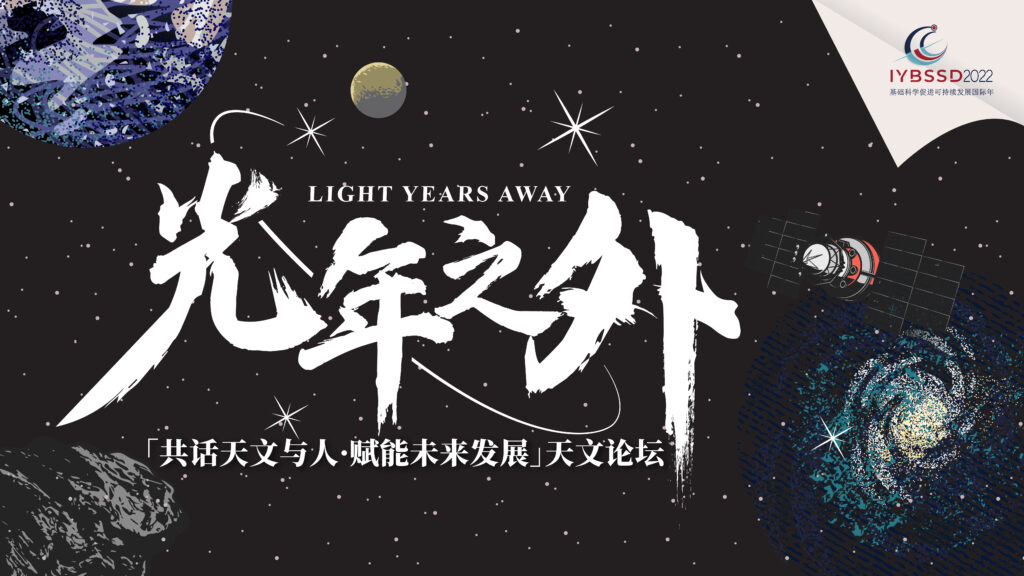From the Innovative Astronomy Forum
The basic sciences provide the essential means to meet crucial challenges such as universal access to food, energy, health coverage and communication technologies. They enable us to understand the impact of the nearly 8 billion people on the planet and to act to limit, and sometimes even to reduce it: depletion of the ozone layer, climate change, depletion of natural resources, extinction of living species. However, contributions of basic, curiosity based, sciences are not well appreciated. The International Year of Basic Sciences for Sustainable Development (IYBSSD) 2022 focuses on these links between basic sciences and the Sustainable Development Goals. This will be a unique opportunity to convince all stakeholders that through a basic understanding of nature, actions taken will be more effective, for the common good.
The Innovative Astronomy Forum “Talking about Astronomy and People, Empowering Future Development” was launched today, organized by the Chinese Astronomical Society, Shanghai Astronomical Observatory (SHAO), Chinese Academy of Sciences (CAS), East Asia Regional Office of the IAU’s Office of Astronomy for Development (EA ROAD). As a member of the IYBSSD International Advisory Committee, CAS has provided an opportunity and platform for SHAO to organize a project related to the theme of IYBSD.
Its objectives are
1. to present the contribution and significance of astronomy to human exploration and cognition of the universe, people’s better life. This is in line with the philosophy and goals of IBYSD.
2. to recognize from history and culture the richness of cultures bred in different regions under the same starry sky, to promote mutual understanding and friendly exchanges, and to facilitate possible cooperation. This is in line with the spirit of the United Nations 2030 Agenda for Sustainable Development and one of OAD’s philosophies: “To strengthen social cohesion through astronomy and to celebrate our common humanity”.
3. Disseminate to the world China’s astronomical big science installations and related highlights, such as the FAST telescope, the CSST, the Earth 2.0 project, and the progress of the Cold Lake site selection.
The five topics of the forum are as follows:
1. To touch the sky (More about the frontiers of astronomy, e.g., black hole photo, dark matter and dark energy, GW, exoplanets)
2. Standing on the ground (More about the astronomical Geodynamics, how astronomy research is connected with our Earth)
3. Tracing the past (More about the studies in the history of Astronomy, how we saw the Universe when we the Man are very young)
4. Understanding the present (More about the big astronomical projects which are currently working)
5. Creating the future (More about the big astronomical projects which are being prepared or on design)
The project is supported by the Department of History and Archaeology of Science and Technology, University of Science and Technology of China (USTC), Shanghai Astronomical Society, OAD (Office of Astronomy for Development), OAO (Office for Astronomy Outreach), OAE (Office of Astronomy Education) and ThePaper.cn.

